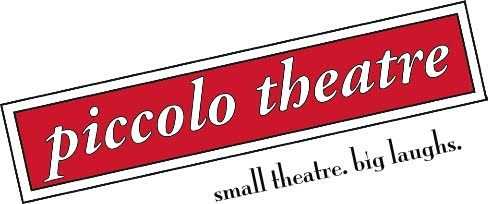 | |
| Carlo Goldoni |
Goldoni had conceived a new type of theatre, a new way of acting, and a new way of perceiving the role of the playwright. Up until this point, Commedia actors were used to creating plays themselves using a great deal of improvisation. The subject was chosen (usually love intrigues, clever ways of getting money and outsmarting simpletons), the characters conceived and named, their relations to one another determined, and the situations clearly outlined, all beforehand. The material was then divided into scenes and lazzi, and the situations were made clear. When this general outline was deemed satisfactory, the actors were then given the freedom to heighten, vary, and embellish their parts as their genius might suggest. But with the Servant of Two Masters script, Goldoni took the reins and wrote everything down in a script. Earth shaking? It was in at the time in Italy.
So what does that mean for Piccolo's performance of the piece? Will this "scripted" play make us LAUGH??? What about the hilarious, creative brand of Piccolo-style improvisation and general goofiness? Aaaaaaahhhhhhhh!!!!
Have no fear! Artistic Director John Szostek has already thought this through.
"There is a trap in attempting to present The Servant of Two Masters and that is how to allow the comic instincts of skilled actors to overcome a tendency to be a servant to the text. It has been said that commedia is the riskiest form of comedy. True, but worth the risk. When the moment of inspired improvisation happens it is like a lightning strike and time seems to be in suspension while a wonder takes place. Fortunately Goldoni’s text is so perfectly balanced and adhering to pure form that it allows us to perform under, through, over and behind the text." -John Szostek
See the show yourself (opens February 25!) and the Piccolo Ensemble will treat you to a Commedia experience that will make you wonder why this conversation about Goldoni's script seemed like such a big deal.
For some more info on Goldoni, you may enjoy this video fro our namesake and inspiration, Piccolo Teatro di Milano (particularly the section right around the 4:00 mark). English speakers, don't fear, the narrator speaks your language. Plus there is also some great material on everyone's favorite character, Arlecchino. Enjoy!
Arlecchino servitore di due padroni | Giorgio Strehler e Ferruccio Soleri
Thanks to our dramaturg, Claudia Zanna for her research and Artistic Director John Szostek for his quote!

No comments:
Post a Comment